For years, I’ve been critical of TV coverage of the Olympic Games by the United States media.
They think that the average American is stupid.
No, seriously – they do. Thee assume that, as a whole, we know nothing about sports other than baseball, football, basketball, NASCAR and hockey. They think that we’re only interested in Team USA and its athletes, or barring that, the athletes who “overcame every obstacle to get to the games.”
What’s lost in all of this? Showing the beauty of the competition as it unfolds, on its own, with the venue and the athletes as the stars.
That brings me to the National Broadcasting Company – a.k.a. NBC. They have exclusive U.S. broadcast rights for the Olympics Games, both summer and winter, through 2018. This means that any and every bit of live or same-day-delayed footage of the Games, be it TV or internet, must be distributed by them.
As such, it sucks – big time. Let’s break this down:
NBC has five networks at their disposal for the 2010 Olympic Winter Games: NBC, Universal Sports, CNBC, MSNBC and USA Network. They also have the online presence of NBCOlympics.com.
There are a large number of events at the 2010 Games, many of which run simultaneously throughout the day, so it would seem that NBC, with their large investment in the games, would flex their collective broadcast muscle to show as many events as possible in as complete and immersive a way as possible.
But they don’t – and they won’t.
Here’s how they don’t:
Say, for instance, you are like me and get all of your TV from over-the-air broadcasting (i.e. no cable, no dish). There are two NBC networks available for Olympic broadcasting: NBC and Universal Sports. And how are they using these networks?
NBC is showing sliced-and-diced coverage: coverage where events are shown in a non-contiguous manner, with rapid-fire switching between events and frequent interruptions of coverage with so-called “human interest” stories about Canada, culture, athletes with “inspiring stories,” et al. The only events with more-or-less contiguous coverage are daytime events that have lower viewership, hockey and figure skating. If you are a fan of alpine skiing (like me), bobsled, luge, ski jumping or long-track speed skating, the coverage is “custom fit” to showcase Team USA and “select favorites for the events.”
Ugh.
And it gets worse when you count in Universal Sports, a usually wonderful network that is now saddled with “talking head” shows, where commentators blather on at length about sports and athletes without showing a shred of actual competition. During prime time, Universal Sports shows reruns of pre-Olympic competition that has zero bearing on the day’s competition in Vancouver and Whistler.
In a word: pathetic.
When you add in the cable networks, it gets even more warped. The combined power of CNBC, MSNBC and USA Network are showing hours upon hours of hockey (in all fairness, they’re showing both the men and the women) and some curling (ooh – curling, the most non-athletic event at the Winter Olympic Games!). Furthermore, they seldom show Games coverage is NBC if showing something on their flagship network, and haven’t yet scheduled anything in prime time to challenge the mother ship.
And just when you thought that was absurd enough, there’s the internet factor. NBCOlympics.com is the go-to place for internet coverage of the Games in the United States. They seem to offer a gold mine of great content, including live streams of skiing, speed skating, hockey, curling, ski jumping, luge, bobsled – the works! They even offer full event recap footage, with all of the competitors shown – hot dog!
But….
If you try to access this content and are not a subscriber to a cable or satellite TV service, you are shit outta luck – “no content for you!” screams the National Broadcast Company. Sure, there’s some online video content available, but it’s all the “fluff piece” human interest interstitial bits, a montage of “hugs and tears” from the previous night’s figure skating competition, a bit on the science of the slap shot, and other things that have nothing to do with the day’s events.
If this is a direct result of the impending merger of NBC Universal and Comcast, consider me angry. Furthermore, this preferential content system is a slap in the face of net neutrality, a cause I believe in most strongly. If NBC’s argument is that people using non-cable internet providers “aren’t paying for content,” then riddle me this: I’m paying for my DSL connection, therefore I’m paying for access to content. Where’s the difference between that and cable TV?
Furthermore, if I had cable-provided internet and TV, why would I be watching events online if they were also available on TV broadcast?
I understand that NBC is a business and has a lot of money invested in broadcasting the Olympics. In fact, it’s estimated that they overpaid for the broadcast rights to the 2010, 2012, 2014 and 2016 Games to the tune of over $200 million.
I also understand that their two over-the-air networks are governed by the FCC and must provide a public service. And I see their mauling of the content on NBC, combined with the complete waste of their Universal Sports network with pointless talk shows, to be a misuse of their FCC license.
So why can’t NBC simply ignore the focus groups that state that their target audience for Olympic coverage is women, age 25-64, who want to see “pretty things” on their TV? Why can’t they assume that the average viewer will understand a new sport if given the opportunity to watch it, warts and all, seeing a lot of the field and learning to spot good moves from bad? Why can’t they flex the muscle of their five TV networks and spread out the coverage, offering simultaneous and full coverage of as many events as possible?
That was the promise of NBC when they first took over broadcasting of the Olympics with the 1992 Summer Olympic Games and the “Triplecast,” a pay-per-view set of three cable channels that showed simultaneous event coverage. And in the 1980s, the previous tenders of the Olympic flame on TV – ABC and CBS – showed more coverage of more events, without breaking to-and-fro between events, teaching people about the sports as the broadcast went along.
That’s how I became hooked on alpine ski racing: watching the 1984 Winter Olympic Games from Sarajevo, where brash Bill Johnson showed up ski racing’s Austrian royalty to win the downhill, and the Mahre twins raced to gold and silver in their final international competition. It was compelling without resorting to “sob story” tactics, while showing all of the top racers and not just the cherry-picked Americans. It made me say “I want to do that!”
And I can’t see this current means of presentation of one of the most compelling competitions around being as compelling to tomorrow’s athletes. Once NBC took the reins, the slice-and-dice methods of Dick Ebersol took over, and the quality of the broadcast went down as a result.
What NBC fails to realize is that great competition is compelling in and of itself. Remember Picabo Street? She was charismatic and compelling on her own, without the help of an “After School Special” biography before each of her races. Same thing with Alberto Tomba, the macho Italian whose rise to fame in the 1988 Winter Games was unprecedented. And how about the “Battle of the Brians” – Orser and Boitano – from the same year? The sport drove the narrative, not the other way around.
So please, NBC: respect the viewer and serve us a multi-station buffet of Olympic choices, rather than spoon-feed us carefully repackaged tripe. You still have almost two weeks to make things better, and there are four years until Sochii (and two until London) for you to make amends. Please do.
Otherwise, you’re all but dead to me.
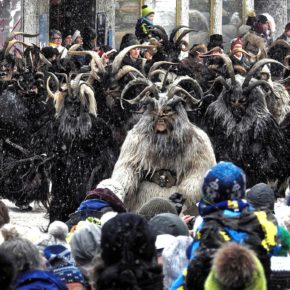
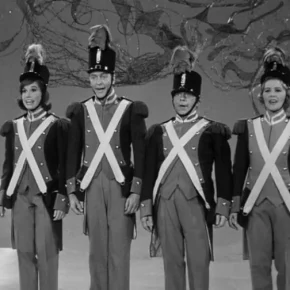
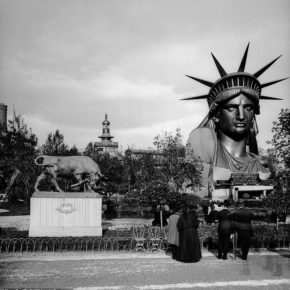
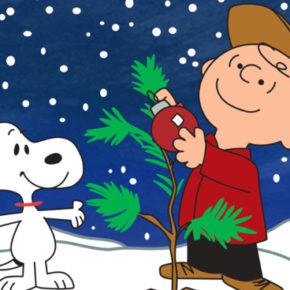

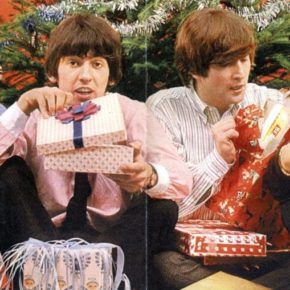









1 Pingback